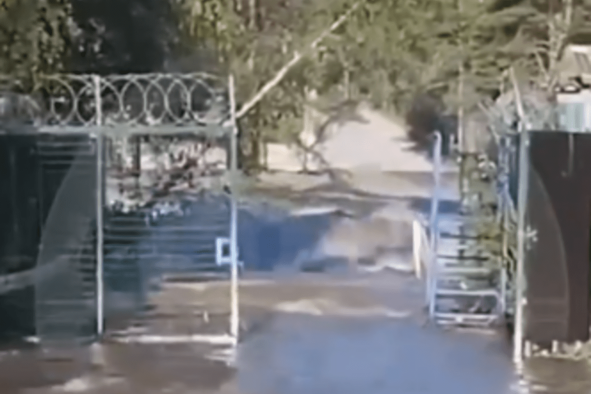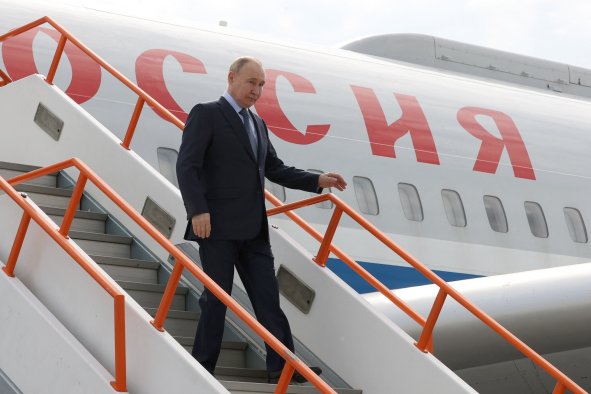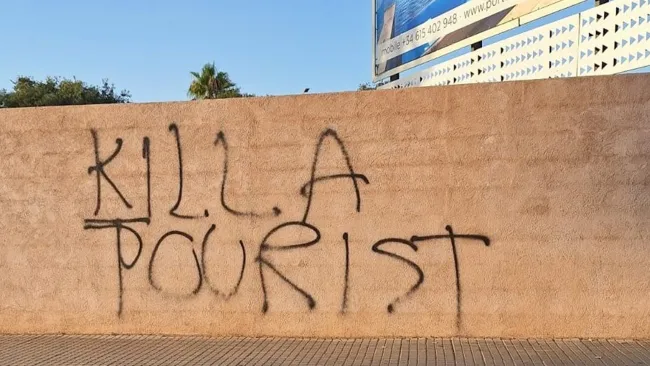The Israeli Defense Forces (IDF) said there is "no change" in the country's defensive guidelines.
While it did not specifically mention the assassination of Hamas chief Ismail Haniyeh, the message came shortly after news of his death.
IDF spokesperson Daniel Hagari said in a post on X, formerly Twitter: "There are no changes in the home defense policy. At this time, the IDF is conducting a situation assessment.
"If any changes are decided, we will update the public immediately on the platforms of the IDF and the Home Front Command. You must stay informed and act according to the instructions of the Home Front Command."
The Home Front Command is the IDF branch responsible for the protection of civilians and responses to emergencies.
There are widespread fears about the situation in the Middle East after Hamas and Iran's Islamic Revolutionary Guard Corps (IRGC) confirmed that Haniyeh was killed, alongside his bodyguard, in the early hours of Wednesday morning.
Haniyeh, Hamas' Political Bureau chief, was slain after attending the swearing-in ceremony of newly elected Iranian President Masoud Pezeshkian on Tuesday.
No one has officially claimed responsibility for the killing, but it is widely assumed that Israel is behind it.
Hamas' press office said Haniyeh "was killed in a treacherous Zionist raid" at his residence in Tehran. The IDF told Newsweek: "We do not comment on those reports."
Haniyeh's death follows the killing of a senior Hezbollah commander, Fouad Shukr, in the Lebanese capital of Beirut. This was in response to a deadly attack that took place Saturday in Majdal Shams, a majority-Druze town in the Israel-occupied Golan Heights, which was blamed on the Lebanese movement.
Hezbollah has denied involvement in the strike, and a spokesperson previously told Newsweek that "any attack will be met with a response."
The fallout from these killings is yet to be seen, with Iran having already called for "immediate action" against Israel for its strike against Hezbollah.
Iran's Supreme Leader Ayatollah Ali Khamenei has vowed revenge for Haniyeh's death, saying Israel has "prepared a harsh punishment for itself."
"We consider his revenge as our duty," Khamenei said in a statement on his official website, saying Haniyeh was "a dear guest in our home."
On Tuesday—referring to the killing of Shukr—the Iranian Permanent Representative to the U.N., Amir Saeid Iravani, wrote a letter to the U.N. Security Council that said: "It must be unequivocally and immediately condemned by the Security Council.
"The Security Council must also take immediate action in response to this criminal act to ensure that such aggression, which threatens regional peace and security, is not repeated. Israel must be held accountable for these atrocities and cannot go unpunished."
Hamas wrote in a Telegram statement that Israel "will pay a heavy price" for the strike that killed Shukr.
It went on: "In light of this brutal aggression against Lebanon, we hold the U.S. administration responsible for the occupation's crimes and ongoing violations through its continued open political and military support."
Disclaimer: The copyright of this article belongs to the original author. Reposting this article is solely for the purpose of information dissemination and does not constitute any investment advice. If there is any infringement, please contact us immediately. We will make corrections or deletions as necessary. Thank you.



